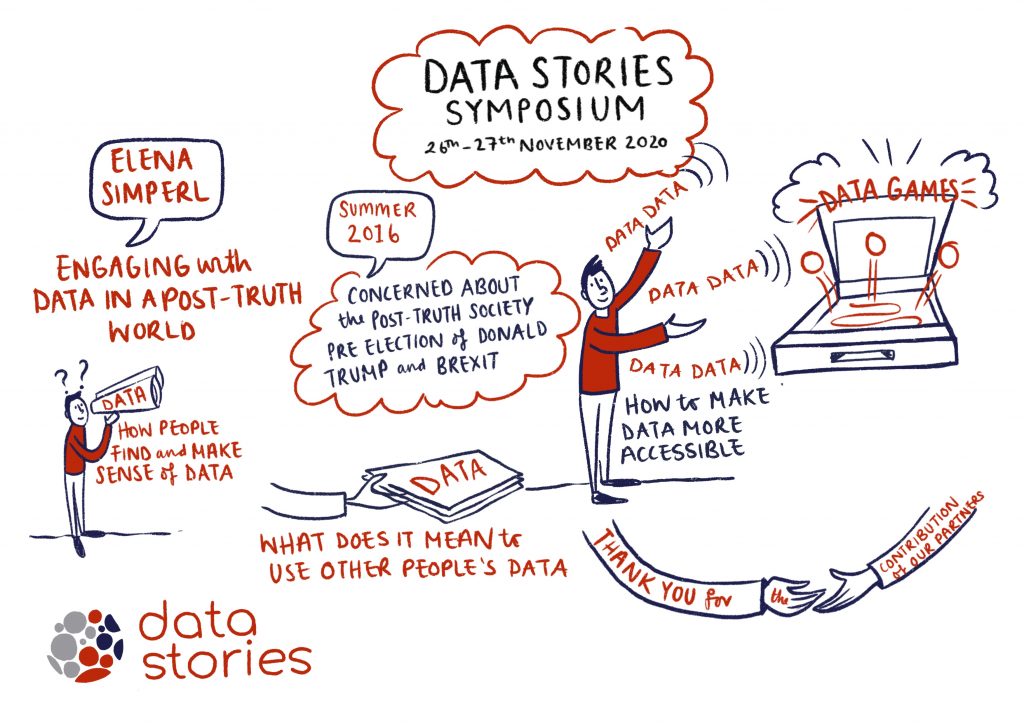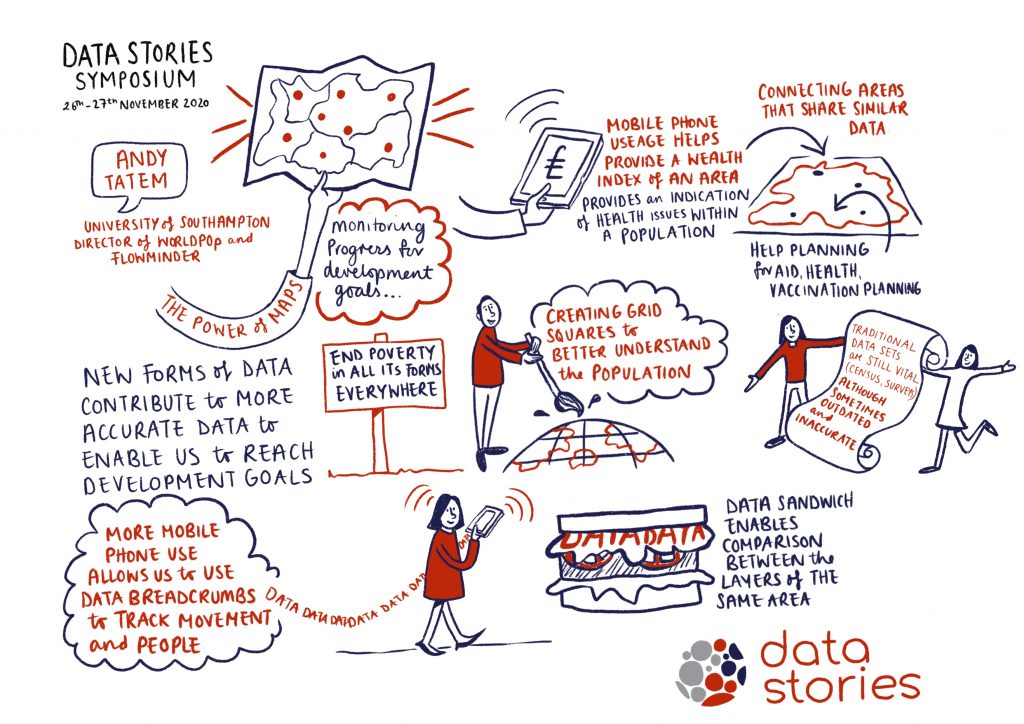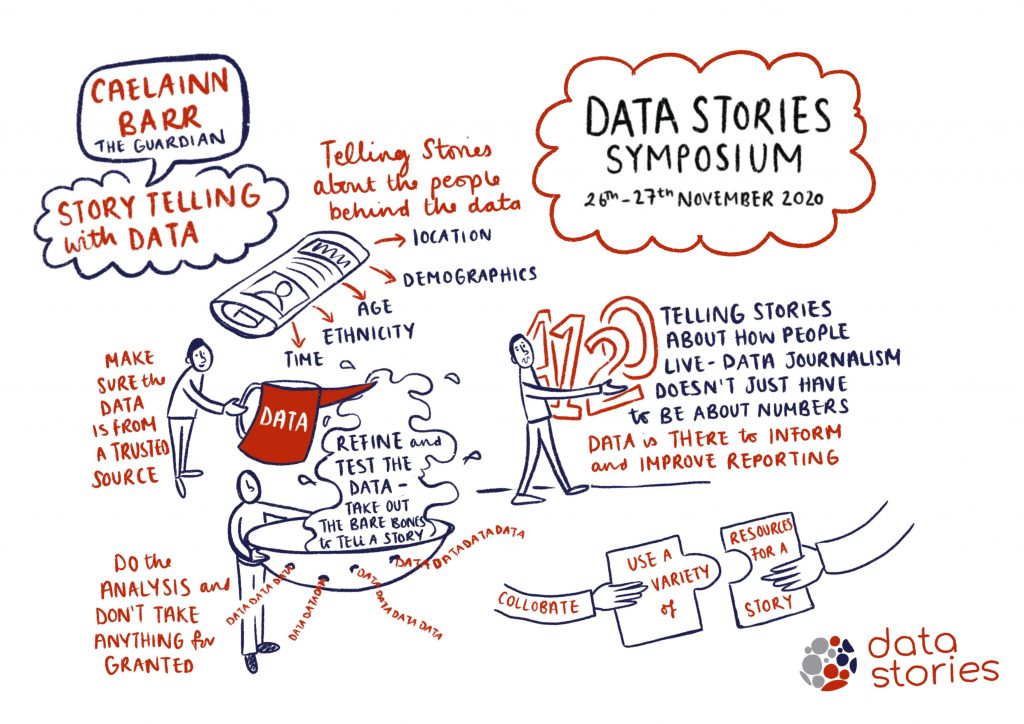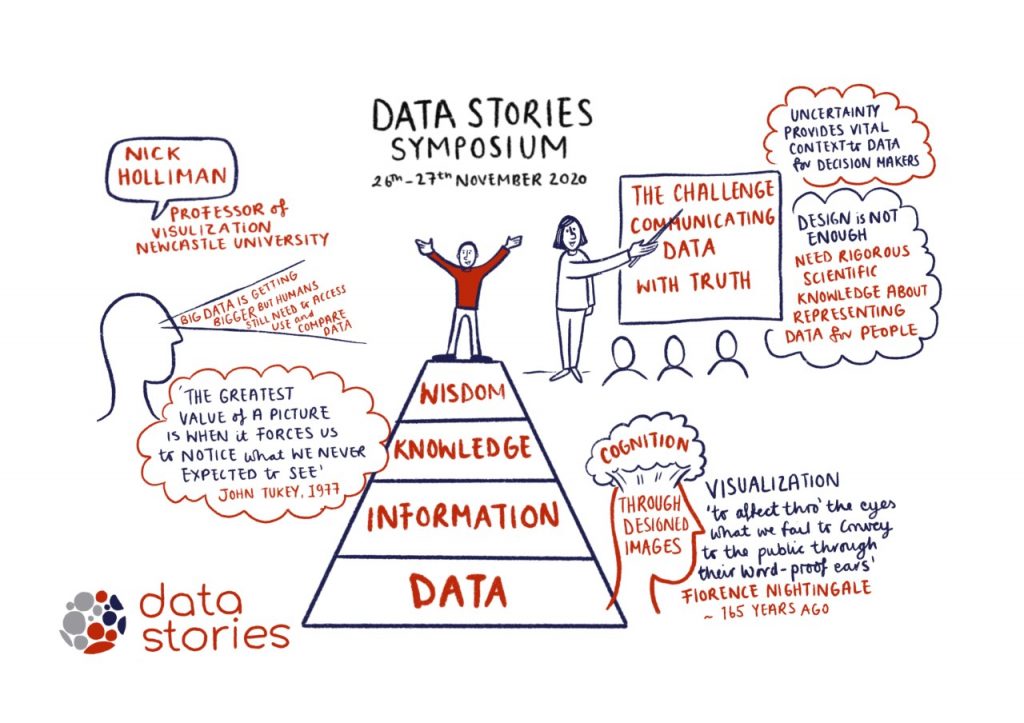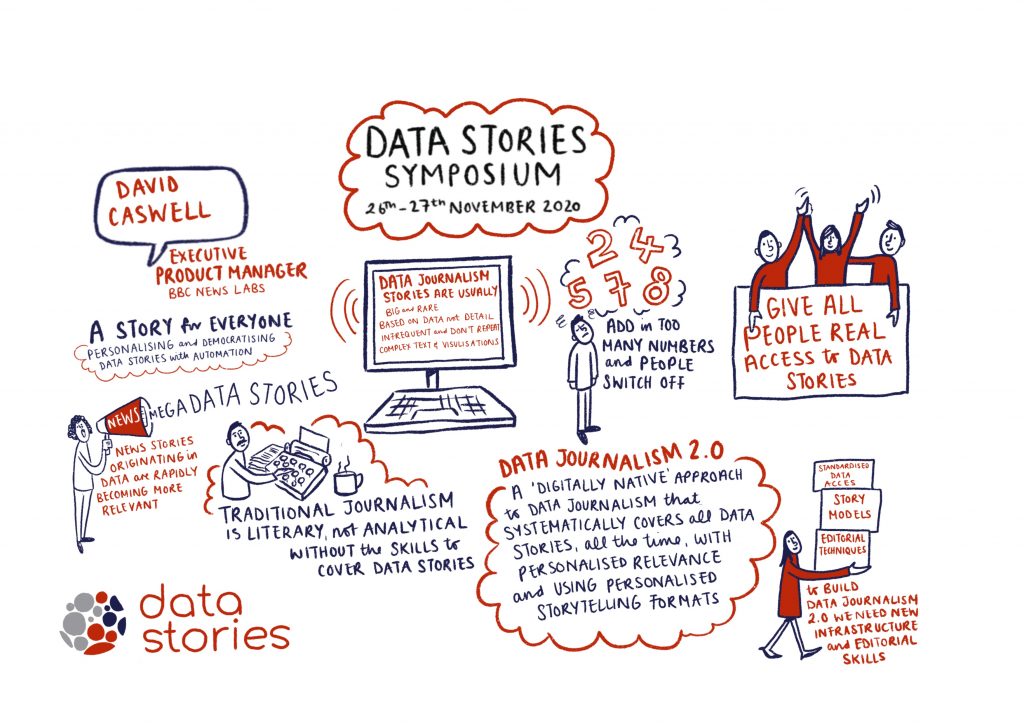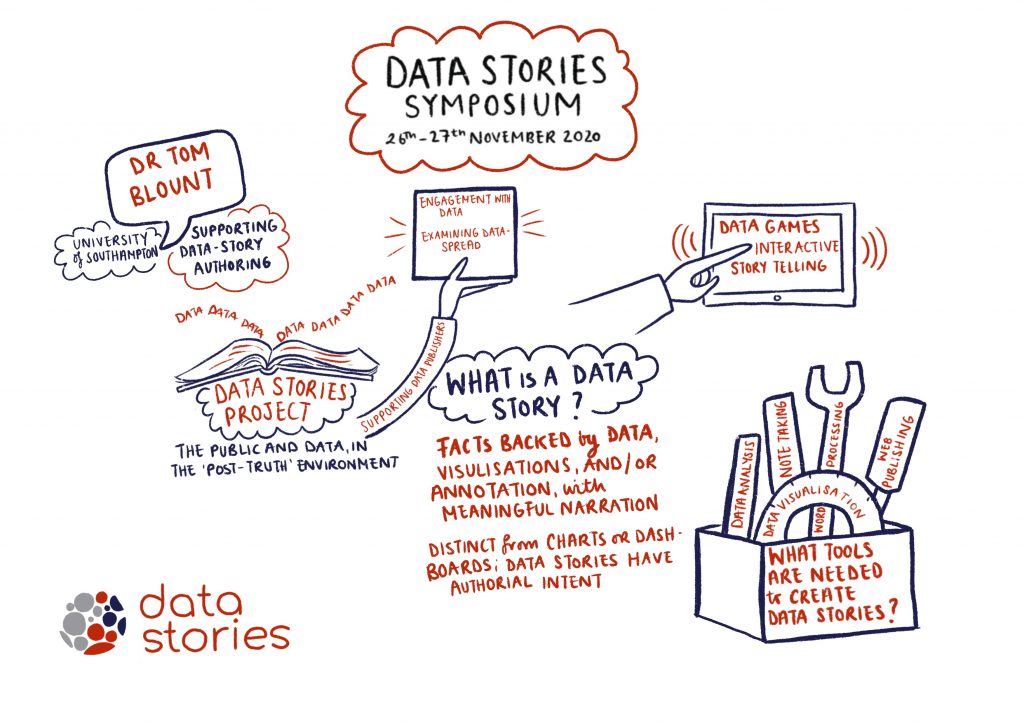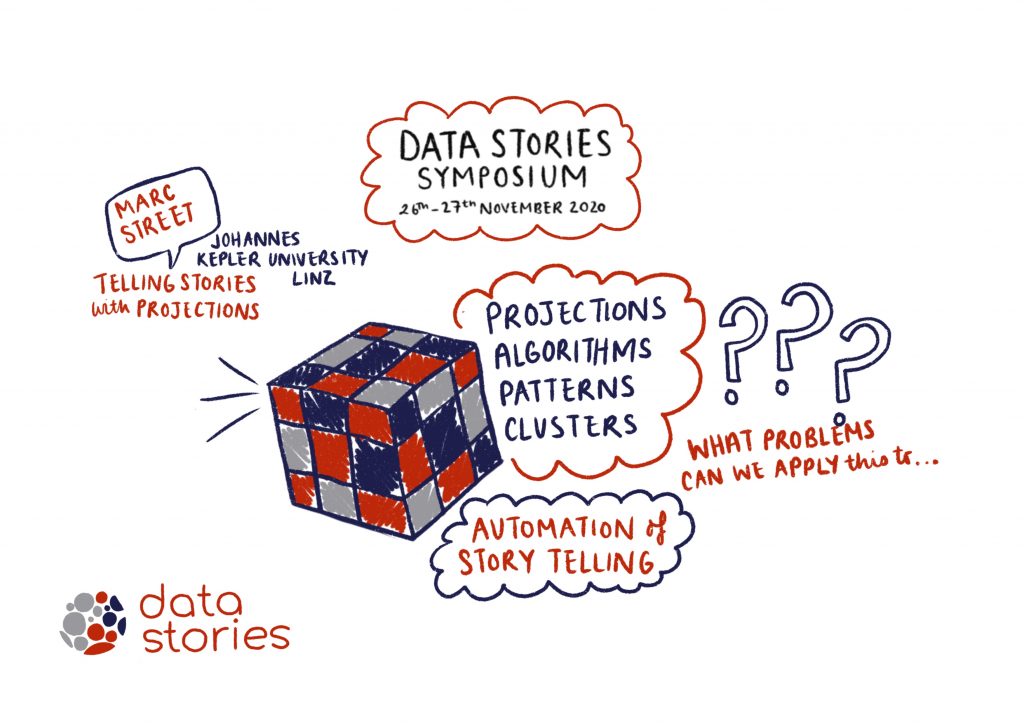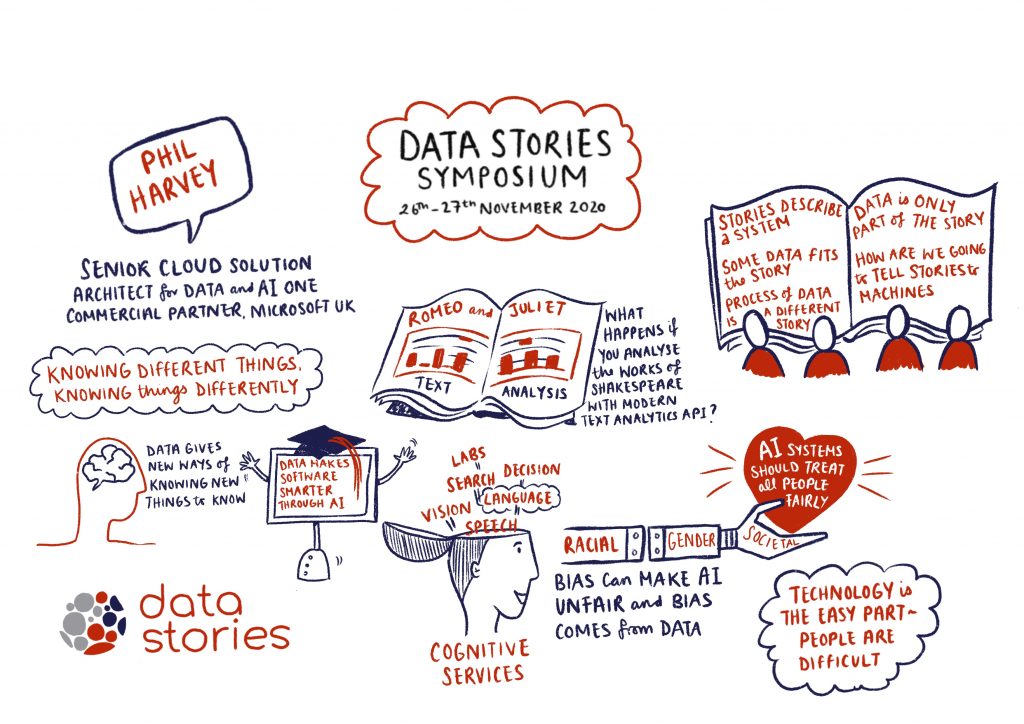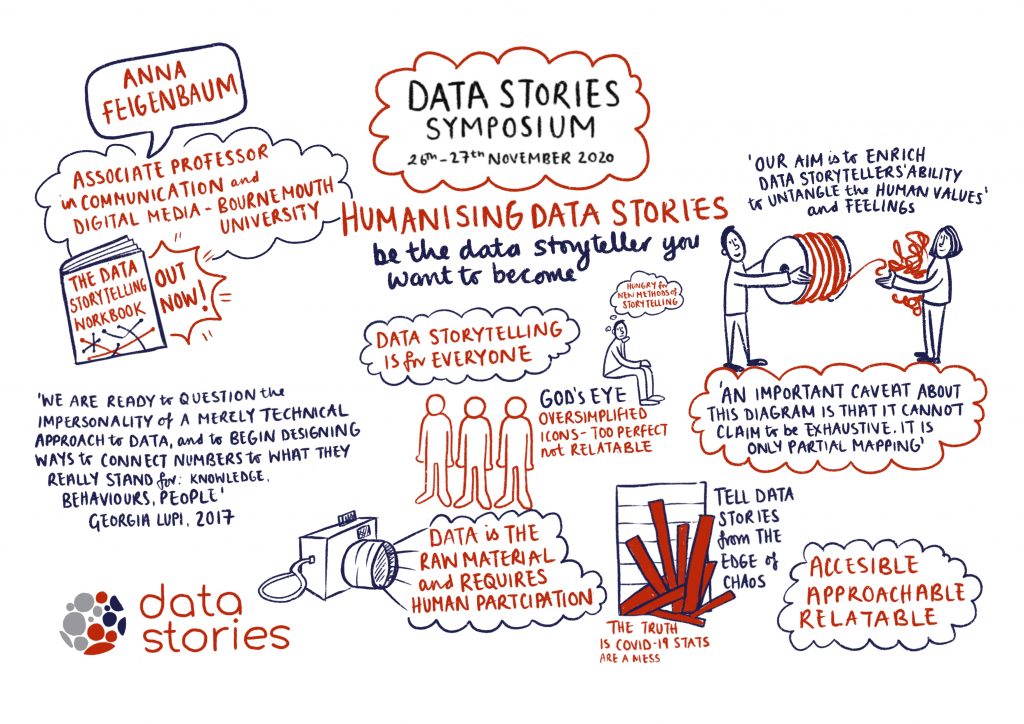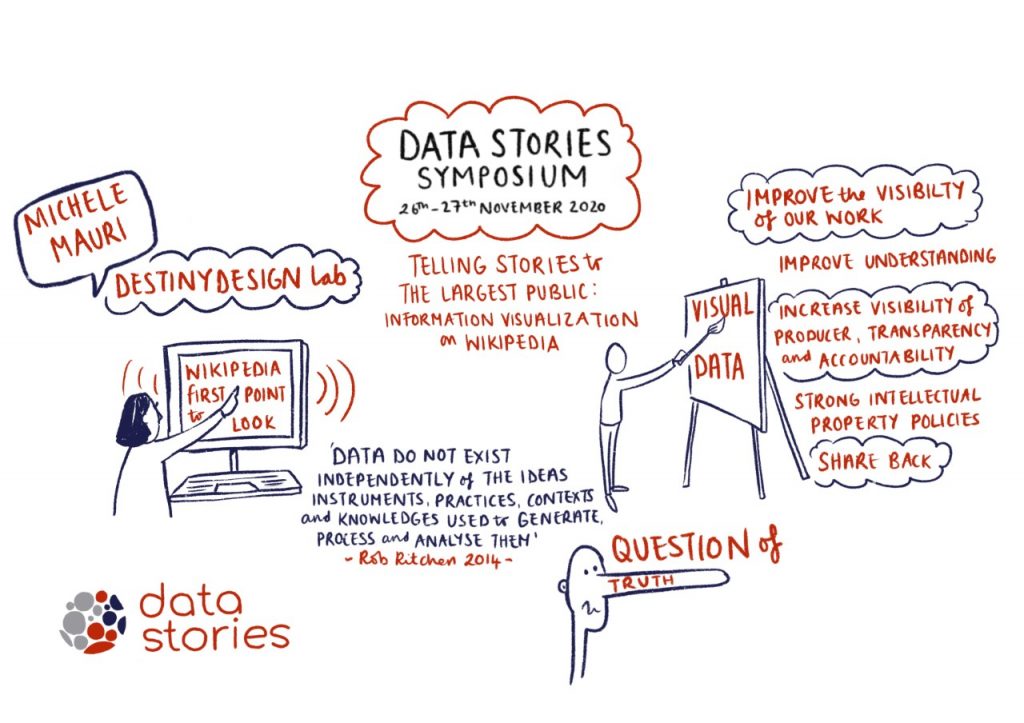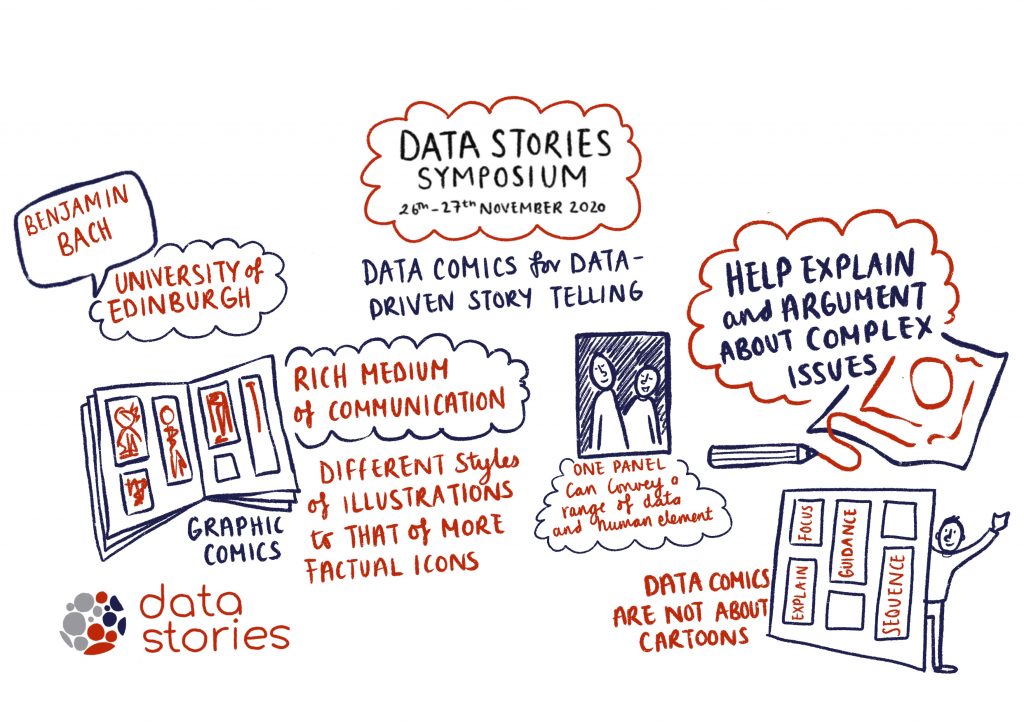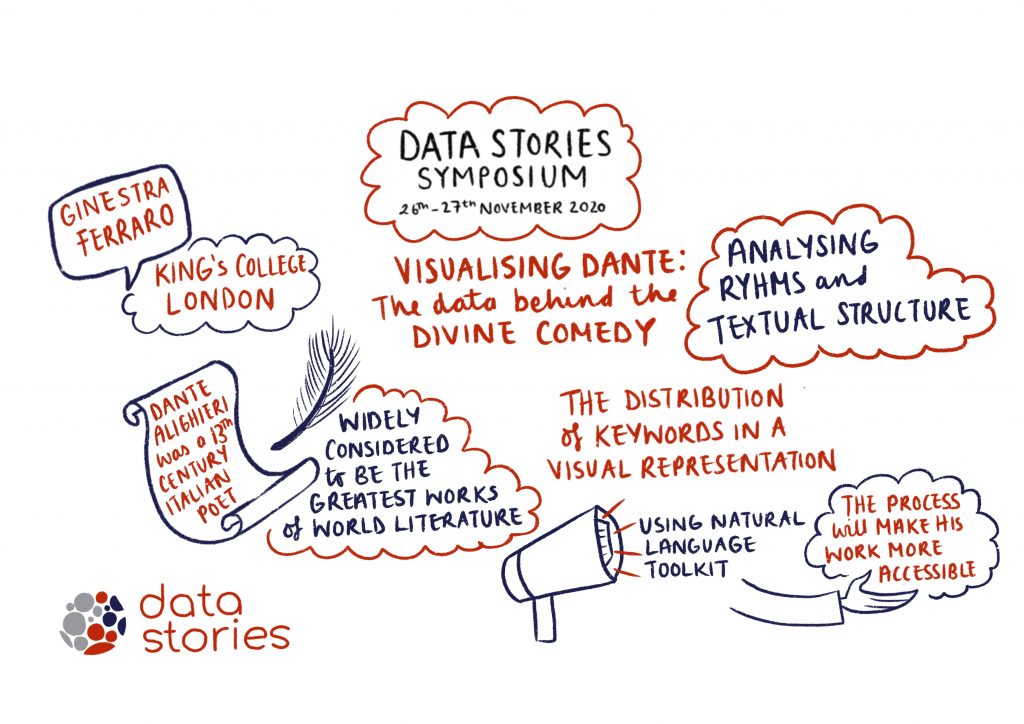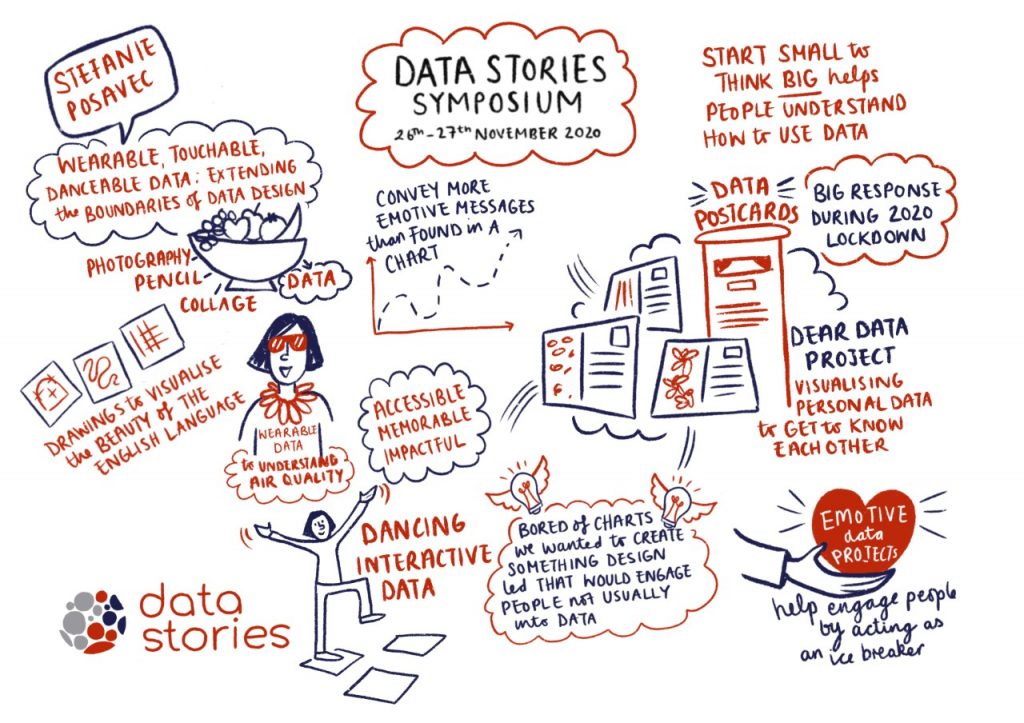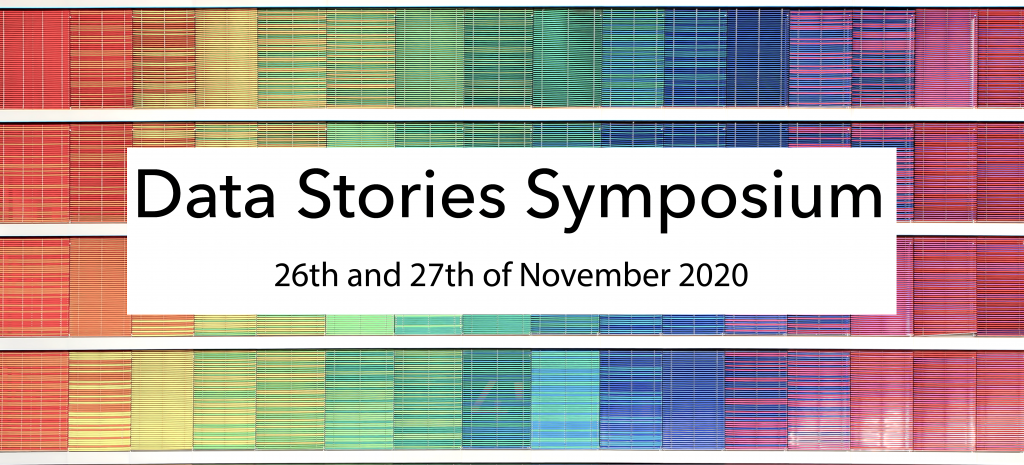
At the DataStories Symposium 2020 we will explore how people engage with data to create stories.
Data is represented in different ways to allow us to understand and make use of it: in numbers, in text, in visualisations, in interactive stories and other forms. Data stories are relevant to many areas of our life – they are part of the news, of how we engage with science and research, they inform our decisions and they help us explain the world.
We are getting more and more aware that data should excite as well as inform and be engaging as well as educating. At the same time, data needs to be presented in a transparent manner that allows different perspectives and supports us in understanding the uncertainties attached to it.
The DataStories Symposium 2020 will bring together experts from academia, industry and the third sector to discuss, generate ideas and inspire future interdisciplinary collaborations aiming to explore Human Data Interaction in relation to storytelling with data.
Contributors and guests include: researchers, data journalists, data artists, computer scientists, curators, game designers, amongst others.
We will have three exciting keynote speakers, interactive sessions and lightning talks to showcase ongoing work and to discuss current challenges around datastories. Topics include, but are not limited to:
– Experiencing data through storytelling, art and games
-Narrative practices for data stories
-Data representations: visualisations, comics and other forms
-Human Data Interaction
-Making sense of data and uncertainty
-Transparent reporting in data journalism
Currently confirmed speakers include: Anna Feigenbaum (Bournemouth University), Andrew Tatem (University of Southampton, Director of WorldPop and Flowminder), Benjamin Bach (University of Edinburgh), David Caswell (BBC News Labs), Phil Harvey (Microsoft), Caelainn Barr (The Guardian), Michele Mauri (Politecnico di Milano – DensityDesign Lab), Kathleen Gregory (DANS), Tom Blount (University of Southampton), Nick Holliman (Newcastle University), Marc Streit (Johannes Kepler University Linz), Ginestra Ferraro (King’s College London), Jude Yew and Elizabeth Churchill (Google) , Stefanie Posavec.
…

Anna Feigenbaum 
Andrew Tatem 
Benjamin Bach 
David Caswell 
Nick Holliman 
Ginestra Ferraro 
Jude Yew

Phil Harvey 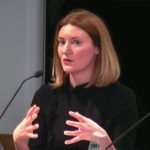
Caelainn Barr 
Michele Mauri 
Kathleen Gregory 
Tom Blount 
Stefanie Posavec 
Marc Streit
The event is free of charge and will be held virtually on ZOOM on the 26th and 27th of November 2020. We are hoping for a diverse audience from a variety of backgrounds, fields and practices.
Please register here.
| DAY 1 – 26th of November Start 9:30* End 2pm* | 9:30 | Introduction by the organisers: Laura Koesten (King’s College London), Elena Simperl (King’s College London), Jonathan Gray (King’s College London), Nick Holliman (Newcastle University) Elena Simperl, The Data Stories Project |
| 9:50 | Keynote 1 & discussion: Andrew Tatem, The power of maps: Combining geospatial data to ensure that noone is left behind (University of Southampton, Director of WorldPop and Flowminder) | |
| 10:30 | Break | |
| 10:35 | · Caelainn Barr, Storytelling with data (The Guardian) · Nick Holliman, Narrative for Data Visualization: A practical introduction to narrative for data visualization using the PowerBI software and data sets from historic epidemiology (Newcastle University) · David Caswell, A Story for Everybody: Personalising and Democratising Data Stories with Automation (BBC News Labs) | |
| 11:45 | Break | |
| 12:00 | · Kathleen Gregory, Storytelling as sensemaking: Understanding data for reuse (DANS) · Tom Blount, Supporting Data Story Authoring with Semi-Automated Tools (University of Southampton) · Marc Streit, Telling stories with projections (Johannes Kepler University Linz) | |
| 12:45 | Break | |
| 13:00 | Keynote 2 & discussion: Phil Harvey, Data Stories: Knowing different things, knowing things differently (Microsoft) | |
| DAY 2 – 27th of November Start 13:00* | 13:00 | Keynote 3 & discussion: Anna Feigenbaum, Humanising data stories through narrative theory and graphic medicine (Bournemouth University) |
| 13:45 | Break | |
| 14:00 | Choose 1 of 2 hands on workshops: 1. Humanising Data through Graphic Storytelling by Anna Feigenbaum and Alexandra Alberda from Bournemouth University. 2. Smoking gun: A collaborative data game experience by Dan Barnard and Joe McAlister from Fast Familiar | |
| 15:15 | Break | |
| 15:20 | · Jude Yew and Elizabeth Churchill, Retelling value through User Journeys (Google) · Michele Mauri, Telling stories to the largest public: information visualization on Wikipedia (Politecnico di Milano – DensityDesign Lab) · Benjamin Bach, Data comics as a novel medium for visual data-driven storytelling (University of Edinburgh) · Ginestra Ferraro, Visualising Dante – The data behind the Divine Comedy (King’s College London) | |
| 16:00 | Break | |
| 16:10 | Stefanie Posavec, Wearable, touchable, danceable data: extending the boundaries of data design | |
| 16:50 | Wrap up | |
| *UK time (GMT) |
| Workshops : 1. Humanising Data through Graphic Storytelling This workshop offers a brief masterclass that draws together Data Storytelling and Graphic Medicine to explore how we can use narrative theories and the comics medium to present data in more humanising ways. Drawing on the principles of approachability, accessibility and relatability this workshop uses hands-on activities to develop our abilities to embed emotion and empathy in data storytelling. Materials to have on hand include light coloured paper, black pen or felt tip marker, and optional colours (i.e. crayons, markers, coloured pencils). No previous drawing experience is required! Dr. Anna Feigenbaum is an Associate Professor in Digital Media and Communication at Bournemouth University. She recently co-authored the Data Storytelling Workbook (Routledge 2020) with Aria Alamalhodaei. Her research can be found in a variety of books, academic journals and popular outlets including: The Atlantic, The BBC, Le Monde, Vox and Vice. Anna also runs community workshops on data storytelling and provides consultancy to NGOs and cultural organisations, including Amnesty International and the New York Times. Alexandra P. Alberda is a doctoral researcher and research illustrator at Bournemouth University. Her PhD on Graphic Medicine explores the intersections of the comics medium, health, and exhibition to understand potential methodological approaches and socio-cultural values of these experiences. Her collaborative projects, namely with Dr Anna Feigenbaum and Aria Alamalhodaei, have explored such topics as public health, data storytelling and visualisation, comics, and creative-led knowledge exchange. As a research illustrator, she has worked on a number of projects, including the recent The Data Storytelling Workbook (Routledge 2020). 2. Smoking gun: A collaborative data game experience Smoking Gun is an interactive thriller for a non co-located audience in a post-truth world. In this workshop participants will experience a taster of the piece (via an app on their phones), hear about its development from its creators and have the opportunity to ask questions. Smoking Gun was developed as part of a STARTS EU residency programme, as a collaboration between artists Fast Familiar and Data Stories at the University of Southampton. Who should you trust in the age of disinformation? A whistleblower contacts you, says they have information which the public should see. But they need your help getting it out there. As you’re drawn into a world of politics, corruption and surveillance, who can you trust? You can see a trailer here. Fast Familiar make artworks which are participatory, playful and political. Fast Familiar’s lead artists are Dan Barnard, Joe McAlister and Rachel Briscoe. They design audience-centric experiences which often utilise ‘digital technology’. Dan Barnard is one of Fast Familiar’s lead artists. He splits his time between Fast Familiar and working as Senior Lecturer at London South Bank University, where he leads the Digital Performance Research group. He won Best Short Paper at the International Conference on Interactive Digital Storytelling 2018, for a presentation on Fast Familiar’s Looking for Love. Joe McAlister is one of Fast Familiar’s lead artists. He is a computational artist and a strong advocate for ecocentric transparency within digital art. He lectures part-time at Goldsmiths, University of London on the MA/MFA Computational Art degree and advises on University of London’s online BSc degrees. In 2020 he was named one of Aesthetica’s 100 international contemporary artists, for his work at Fast Familiar. |
| Useful resources from the event: · The Data Journalism Handbook: Towards A Critical Data Practice” will be published by Amsterdam University Press in 2021. If you’re interested in using the book for teaching or training you can request a preprint by writing to: contact@publicdatalab.org. · Workshop – Humanising Data through Graphic Storytelling: In this toolkit you’ll find the data comics, a few of the resource guides, worksheets and archived materials from the workshop https://bit.ly/dswBU_KCL |
Visual Summaries:
Transforming Data into drawings: Live drawing during the talks by Catherine Allan.
Video Talks:
|
|
|
|
|
|
|
|
|
|
|
|
|
|
|
|
|
|
|
|
|
|
Organised by: Laura Koesten, Elena Simperl, Jonathan Gray, Nick Holliman
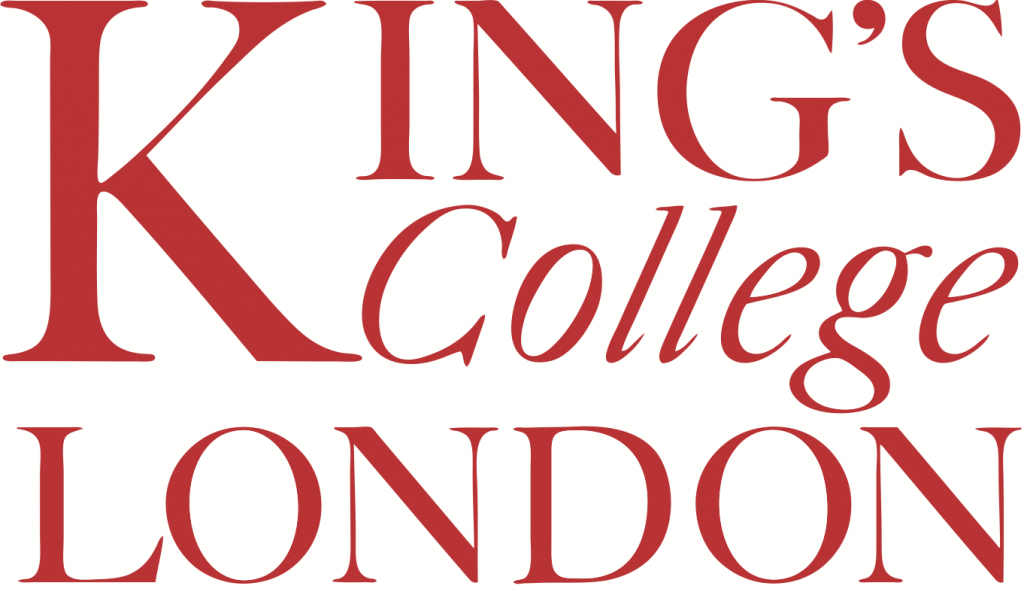


Sponsored by: TheyBuyForYou, MediaFutures
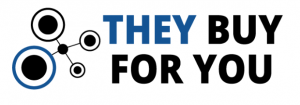

*Title image by Ricardo Gomez Angel on Unsplash



